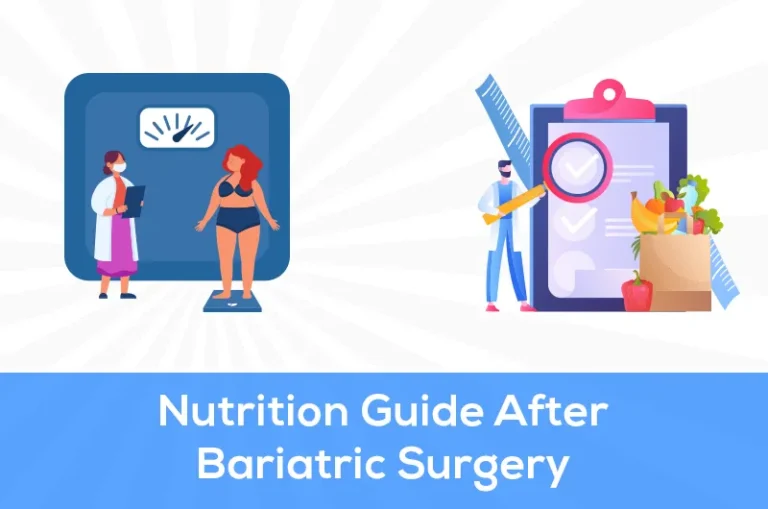Pre-Bariatric Surgery Diet
The pre-bariatric surgery diet is a fundamental step in preparing for a successful surgical outcome and a smoother recovery process for bariatric surgery patients. This nutritional regimen, typically initiated weeks or even months before the procedure, is designed to reduce body fat, particularly in the liver, to decrease surgical risks and enhance the healing process. Here’s an overview of what this diet entails, incorporating the key terms you’ve requested.
Objective of the Pre-Bariatric Surgery Diet
The primary goal of the pre-surgery diet is to shrink the liver and reduce the amount of visceral fat around the abdomen. This is crucial for bariatric surgery patients because a smaller liver allows the surgeon to perform the procedure more safely and efficiently. Health care professionals emphasize the importance of this diet phase as it directly impacts the ease of surgery and the onset of post-operative recovery.
Duration
The duration of the pre-bariatric surgery diet can vary from a few weeks to a few months before surgery, depending on the patient’s initial body mass index (BMI), health condition, and the specific requirements of the health care team overseeing the surgery. Typically, patients are placed on this diet for 2 to 4 weeks before surgery, but some may need to start months in advance to meet their pre-surgery weight loss goals.
Components of the Diet
- Low-Calorie, High-Protein: The diet is usually low in calories but high in protein. Protein is essential for maintaining muscle mass during the weight loss phase and for supporting healing in the weeks after surgery.
- Carbohydrate Restrictions: Reducing carbohydrate intake, especially from sugary and processed sources, is a key aspect of this diet. Lowering carbohydrate consumption helps in reducing liver size more effectively.
- Hydration: Adequate fluid intake is emphasized, with patients encouraged to drink at least 64 ounces of water per day. However, sugary drinks, caffeinated beverages, and alcohol are discouraged.
- Vitamins and Supplements: Depending on individual health assessments, health care providers may recommend starting vitamin and mineral supplements in advance of the surgery to address any nutritional deficiencies.
Expected Outcomes
Adhering to the pre-bariatric surgery diet can significantly impact the success of the surgery and the months of recovery that follow. Patients who follow their dietary guidelines closely often experience fewer complications during surgery, a quicker recovery period, and a smoother transition to the post-operative diet phases that will guide their eating habits for the rest of their lives.
Health Care Support
Bariatric surgery patients are not alone in this journey. Their health care team, including dietitians, nurses, and surgeons, provides continuous support, guidance, and education throughout the pre-surgery phase and in the weeks and months after surgery. This multidisciplinary approach ensures that patients receive the holistic care they need to achieve their long-term weight loss and health goals.
2 Week Pre Bariatric Surgery Diet
The two-week diet plan before bariatric surgery is designed to improve the safety and success of surgery. This diet usually focuses on low calorie, high protein and low fat foods. In addition, this diet is an example, please contact us for a personalised diet plan!
Day 1:
- Breakfast: 1 cup protein shake, 1 cup decaffeinated tea or coffee
- Snack 1 portion of low-fat yoghurt
- Lunch: 2 tablespoons hummus, raw vegetables (cucumber, pepper)
- Snack 1 small size apple
- Evening: 100 grams grilled chicken breast, boiled broccoli
Day 2:
- Breakfast: 1 cup protein shake, 1 cup green tea
- Snack 10 almonds
- Lunch: Salad (greens, with 1 tbsp olive oil)
- Snack 1 portion of light cheese
- Evening: 100 grams grilled salmon, grilled vegetables
Day 3:
- Breakfast: 1 cup protein shake, 1 cup herbal tea
- Snack 1 small pear
- Lunch: 100 grams of grilled chicken salad with lemon juice and olive oil
- Snack 1 glass kefir
- Evening: 100 grams of red meat (lean), boiled spinach
Days 4-14:
During this period, choose a protein shake and a decaffeinated drink (tea or coffee) for breakfast, protein-heavy choices (chicken, fish, lean cuts of red meat) and vegetables for lunch and dinner, and low-calorie protein sources (such as yoghurt, cheese, almonds, nuts) and fresh fruit for snacks. Drink at least 8-10 glasses of water every day.
General Recommendations:
- Avoid sugary drinks, fizzy drinks and processed foods.
- Drink enough water or sugar-free drinks every day.
- Avoid alcohol, caffeine and high-sugar foods.
- Eat slowly and chew your food well
- .Focus on your protein intake, as this helps prevent muscle loss.
Remember, this diet is just an example and should be adjusted according to your personal health condition, nutritional needs and the advice of your doctor.
1 Month Pre Bariatric Diet
Week 1-2: Liquid Diet with Protein Focus
- Breakfast: Protein shake made with low-fat milk or water
- Mid-Morning Snack: Clear, low-calorie broth
- Lunch: Another protein shake
- Afternoon Snack: Sugar-free, non-fat yogurt
- Dinner: Protein shake or a clear soup with added protein powder
- Evening Snack: Sugar-free gelatin
Week 3: Introduction of Soft Foods
- Breakfast: Scrambled eggs with spinach (use cooking spray to minimize fat)
- Mid-Morning Snack: Protein shake or a small portion of cottage cheese
- Lunch: Pureed vegetable soup with lean ground chicken or turkey
- Afternoon Snack: A smoothie made with protein powder, berries, and water or almond milk
- Dinner: Mashed cauliflower with grilled fish or a soft tofu stir-fry with vegetables
- Evening Snack: Sugar-free pudding
Week 4: Solid Foods (Soft Texture)
- Breakfast: Oatmeal with protein powder mixed in
- Mid-Morning Snack: Small apple with a thin slice of turkey breast
- Lunch: Baked sweet potato with a side of steamed broccoli and a small portion of grilled chicken
- Afternoon Snack: A small handful of almonds or walnuts
- Dinner: Zucchini noodles with a tomato-based sauce and lean ground beef
- Evening Snack: A slice of avocado or a few slices of cucumber
Daily Guidelines:
- Drink at least 64 ounces of fluid per day, avoiding carbonated beverages and drinking slowly.
- Consume small, frequent meals (about 6 per day) to avoid overwhelming your stomach.
- Focus on high-protein foods to help preserve muscle mass.
- Avoid sugars, fats, and high-carbohydrate foods to reduce liver size and body fat.
- Take a daily multivitamin and any other supplements recommended by your healthcare provider.
- Exercise regularly as approved by your healthcare provider, focusing on light activities such as walking.
3 Month Pre Bariatric Surgery Diet
Month 1: Gradual Reduction in Calories, Introduction to High-Protein Diet
Weeks 1-2:
- Focus: Start reducing overall calorie intake by cutting out sugary snacks, sodas, and high-fat foods. Begin incorporating more lean proteins and vegetables into your diet.
- Breakfast: Oatmeal with a scoop of protein powder or a protein shake.
- Lunch: Grilled chicken salad with a variety of vegetables, dressed with lemon juice and olive oil.
- Dinner: Baked fish with steamed green beans.
- Snacks: Low-fat Greek yogurt, raw vegetables with hummus, or a small handful of nuts.
Weeks 3-4:
- Focus: Increase the proportion of protein in your diet while reducing carbohydrates and fats to initiate gradual weight loss.
- Breakfast: Scrambled eggs with spinach and mushrooms.
- Lunch: Turkey breast wrap with whole-grain tortilla, lettuce, and avocado.
- Dinner: Grilled salmon with quinoa and roasted Brussels sprouts.
- Snacks: Cottage cheese with sliced cucumber, protein shake, or an apple with almond butter.
Month 2: Stabilizing Protein Intake, Reducing Carbohydrates
Weeks 5-8:
- Focus: Stabilize high protein intake, reduce carbohydrates further, and focus on foods with low glycemic index to manage blood sugar levels.
- Breakfast: Protein smoothie with low-fat milk or almond milk, spinach, and berries.
- Lunch: Chicken or tuna salad with a generous serving of mixed greens.
- Dinner: Stir-fried tofu with a variety of vegetables over a small serving of brown rice.
- Snacks: Sliced bell peppers with guacamole, a boiled egg, or a protein bar (low sugar).
Month 3: Pre-Surgery Preparation
Weeks 9-10:
- Focus: Begin transitioning to a more liquid-based diet to prepare your stomach for post-surgery diet.
- All Meals: Protein shakes, low-fat broth soups, sugar-free pudding, and yogurt.
Weeks 11-12:
- Focus: Strictly adhere to a liquid diet, as recommended by most bariatric surgery guidelines, to reduce liver size and minimize surgical risks.
- All Meals and Snacks: Clear broths, unsweetened tea, protein shakes, water, and sugar-free electrolyte beverages.
Daily Guidelines Throughout the Plan:
- Stay well-hydrated by drinking at least 64 ounces of water daily, avoiding carbonated and sugary drinks.
- Eat small, frequent meals or snacks (5-6 times per day) to maintain energy levels and prevent hunger.
- Focus on lean proteins to support muscle maintenance and recovery.
- Limit intake of simple carbohydrates and unhealthy fats to support gradual weight loss.
- Engage in regular, moderate exercise as approved by your healthcare provider.







